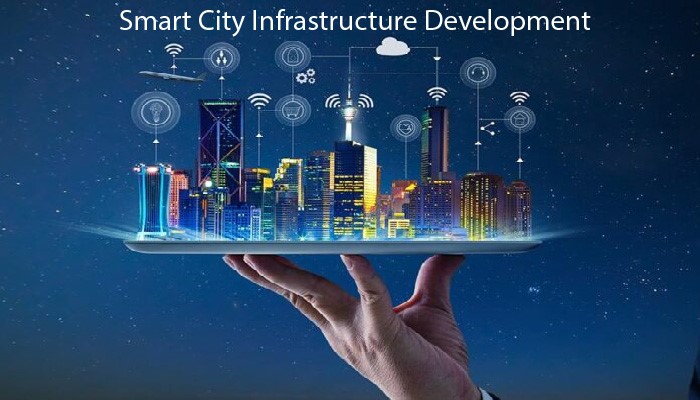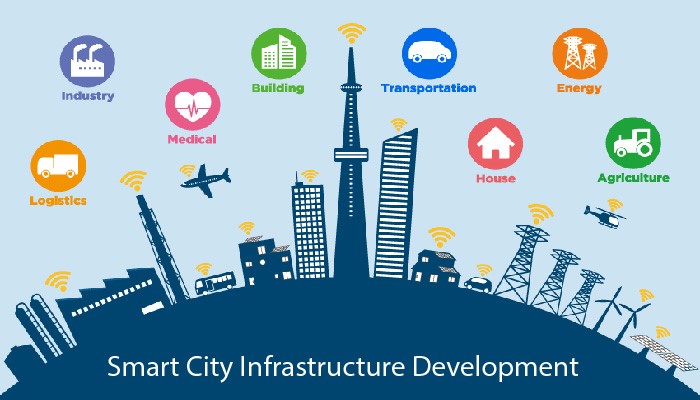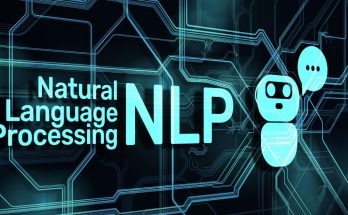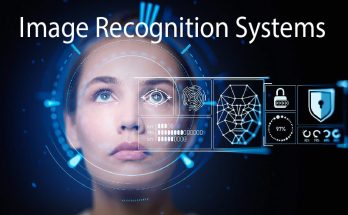Smart City Infrastructure Development: A comprehensive Overview
Welcome to the future of urban living – Smart Cities! Imagine cities where technology seamlessly integrates with everyday life, making everything from transportation to energy usage more efficient and sustainable. In this blog post, we will delve into the fascinating world of Smart City Infrastructure Development, exploring how innovative technologies are transforming the way our cities function and improving the quality of life for residents. Get ready to discover how smart infrastructure is shaping the cities of tomorrow!

The Role of Infrastructure in Creating a Smart City
Infrastructure plays a vital role in setting the foundation for a smart city. It is the backbone that supports the implementation of various technologies and services to enhance urban living. From efficient transportation systems to sustainable energy solutions, infrastructure development is key to creating a seamless and connected environment for residents.
Smart cities rely on robust communication networks, data centers, sensors, and IoT devices integrated into everyday infrastructure. These elements work together to collect valuable data that can be analyzed to improve decision-making processes and optimize resource utilization. By leveraging technology within infrastructure, cities can enhance public safety, reduce environmental impact, and increase overall quality of life.
Moreover, investing in smart infrastructure not only benefits citizens but also attracts businesses and drives economic growth. Companies are more inclined to set up operations in cities with advanced infrastructure that enables productivity and innovation. As we continue to advance technologically, the role of infrastructure will remain crucial in shaping the future of smart cities worldwide.
Technologies for Building a Smart City Infrastructure
Smart cities rely on cutting-edge technologies to build sustainable and efficient infrastructure. One key technology is the Internet of Things (IoT), which enables interconnected devices to collect and share data in real-time. IoT sensors can monitor traffic flow, energy usage, waste management, and more, allowing city planners to make informed decisions.
Another essential technology for smart city infrastructure is artificial intelligence (AI). AI algorithms can analyze vast amounts of data to optimize services like public transportation routes or predict maintenance needs for critical infrastructure. Machine learning models help cities become more responsive and proactive in addressing citizen needs.
Blockchain technology also plays a crucial role in securing transactions and data exchanges within smart cities. By utilizing blockchain for secure digital identities or transparent supply chains, cities can enhance trust among residents and stakeholders while ensuring data privacy.
Moreover, renewable energy sources such as solar panels and wind turbines are integral components of sustainable smart city development. These clean technologies reduce carbon emissions and promote environmental sustainability while decreasing reliance on traditional power grids.
Innovative solutions like 5G networks provide high-speed connectivity that supports various smart city applications from autonomous vehicles to remote healthcare services. With these advanced technologies working together, smart cities can improve efficiency, sustainability, and quality of life for their residents.
Case Studies of Successful Smart City Projects
In Singapore, the Smart Nation initiative has transformed the city-state into a model smart city. Through integrated technology solutions, Singapore has optimized urban planning, transportation systems, and healthcare services.
Barcelona stands out for its use of IoT sensors to monitor and manage urban infrastructure efficiently. From waste management to energy conservation, Barcelona’s smart city approach has improved quality of life for residents while reducing environmental impact.
Copenhagen is another success story in smart city development. With a focus on sustainability and green initiatives, Copenhagen has implemented smart grids for energy efficiency and intelligent transport systems to reduce congestion and air pollution.
Dubai’s commitment to innovation is evident in its smart city projects like Dubai Silicon Oasis and Smart Dubai City. These initiatives leverage advanced technologies such as AI and blockchain to enhance government services and streamline operations across various sectors.
These case studies showcase the diverse ways in which cities around the world are embracing technology to create more sustainable, efficient, and connected urban environments.
Challenges in Implementing Smart City Infrastructure
Implementing smart city infrastructure comes with its fair share of challenges that need to be carefully navigated. One major obstacle is the high initial cost associated with upgrading existing systems and implementing new technologies. Cities must secure funding and allocate resources efficiently to ensure the success of these projects.
Another challenge is the integration of various technological solutions from different vendors, which can lead to compatibility issues and delays in deployment. Ensuring seamless communication between different systems is crucial for the overall functionality of a smart city.
Additionally, privacy and security concerns surrounding data collection and storage remain a significant hurdle. Safeguarding sensitive information while harnessing it for improved services requires robust cybersecurity measures and strict data governance policies.
Moreover, gaining public acceptance and engagement in smart city initiatives can be challenging. Educating residents about the benefits of these advancements and addressing any apprehensions they may have is essential for fostering community support.
Despite these obstacles, overcoming them paves the way for creating sustainable, efficient, and innovative urban environments that benefit both residents and businesses alike in the long run.
Future Possibilities and Innovations in Smart City Development
As technology continues to advance at a rapid pace, the future of smart city development holds endless possibilities. One exciting innovation is the integration of artificial intelligence (AI) and machine learning into urban infrastructure, allowing for real-time data analysis and decision-making.
Imagine a city where self-driving cars navigate seamlessly through traffic, optimizing routes to reduce congestion and emissions. Smart energy grids could automatically adjust based on demand, maximizing efficiency and reducing waste.
Furthermore, the Internet of Things (IoT) will play a crucial role in connecting devices and systems within a smart city network. From smart parking meters that notify drivers of available spots to trash cans that signal when they need emptying, IoT technology will revolutionize daily life in urban environments.
Additionally, advancements in renewable energy sources such as solar panels and wind turbines will help cities reduce their carbon footprint while ensuring sustainable growth. With these innovations on the horizon, the future of smart city development is both promising and transformative.
Conclusion:
As smart city infrastructure development continues to evolve, it presents a world of endless possibilities for urban innovation and sustainability. With technology at the forefront, cities worldwide are embracing the concept of smart cities to enhance quality of life for residents and boost efficiency in various sectors.
The role of infrastructure in creating a smart city cannot be understated. From advanced transportation systems to efficient energy management and sustainable buildings, every aspect plays a crucial part in shaping the future of urban environments. By leveraging cutting-edge technologies and data-driven solutions, cities can overcome challenges and pave the way for smarter, more resilient communities.
While there are certainly challenges to implementing smart city infrastructure – such as funding constraints, interoperability issues, and security concerns – these obstacles can be overcome with strategic planning, collaboration between stakeholders, and a commitment to innovation.
Looking ahead, the future holds even more exciting opportunities for smart city development. As technology continues to advance rapidly, we can expect to see further integration of IoT devices, artificial intelligence applications, renewable energy sources, autonomous vehicles – all working together seamlessly to create truly interconnected urban ecosystems.



